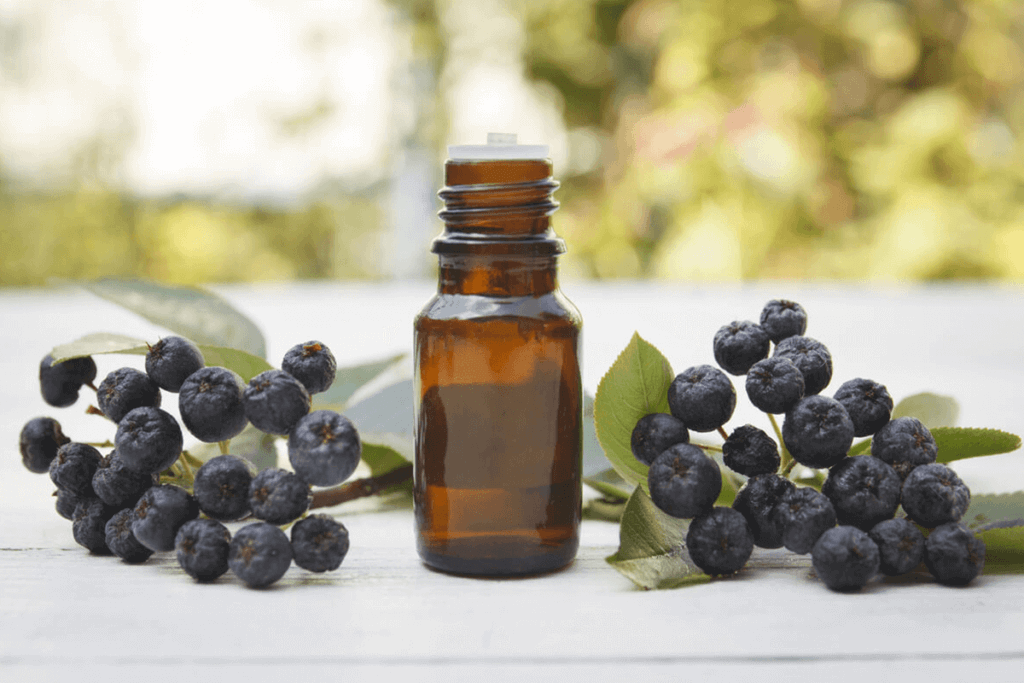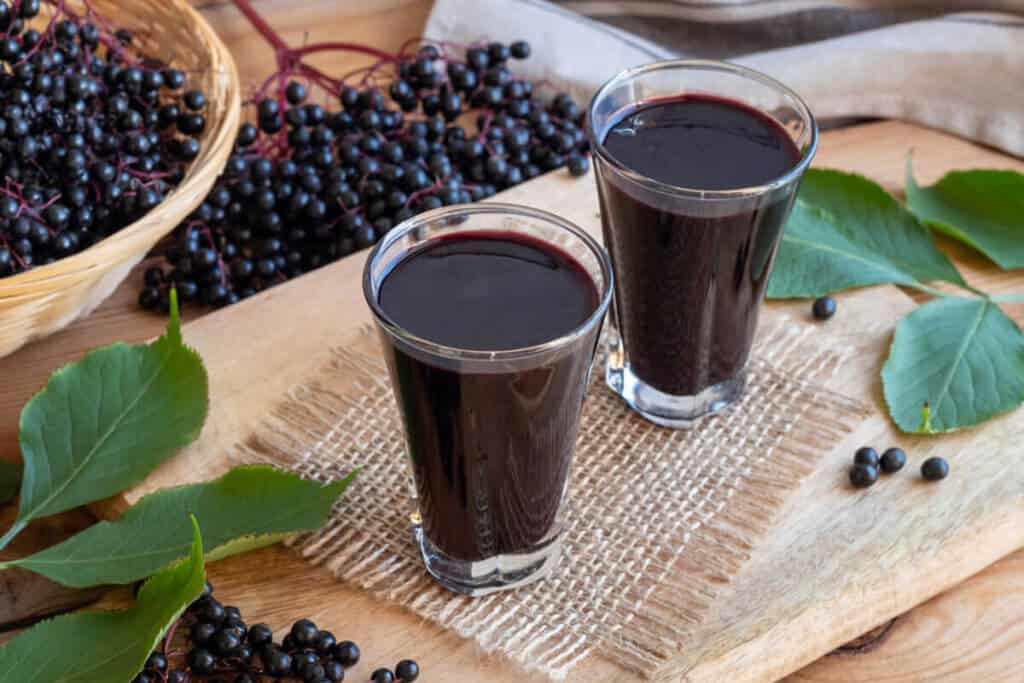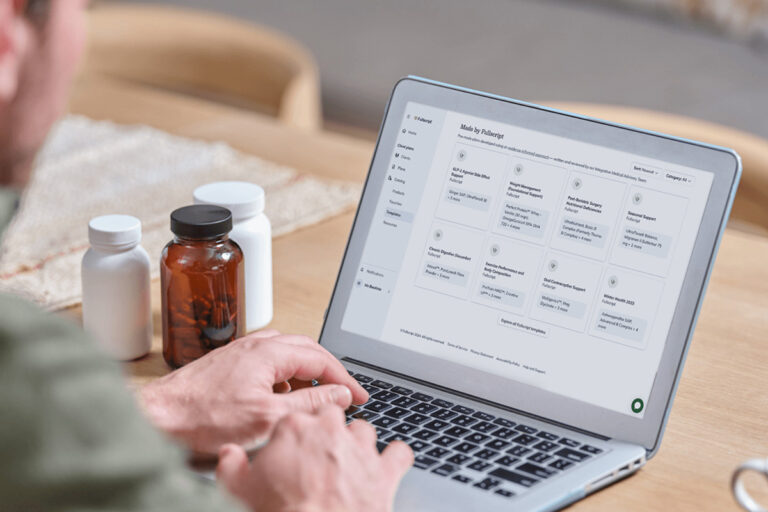What is elderberry?
Also known as European elder, black elder, elderflower, or its Latin name, Sambucus nigra, elderberry is a tree that grows in Europe, Asia, Africa, and the United States and has a long history of use in Europe. (7) The dried flowers and the fruit are both commonly used in teas, extracts, syrups, and pills.

Elderberry benefits
Elderberry has been used for centuries as a laxative and diuretic. In more recent history, it has also been used to treat colds, which is what it’s most well-known for today. (2) In addition to these more common uses, elderberry has a number of traditional uses:- Blood pressure control
- Blood sugar regulation
- Headache relief
- Sciatica relief (nerve pain)
- Uric acid level reduction (2)(10)
Elderberry for colds and flu
As a result of its antioxidant and immune-supportive properties, elderberry gets a lot of attention come cold and flu season. And with good reason. Some in vitro studies have shown that elderberry extracts may help prevent the common cold and flu. For example, one in vitro study found that two of the flavonoids in elderberry bind to the flu virus H1N1 and prevent it from infecting host cells. (9) While the results of these studies appear promising, human studies examining the effects of elderberry are preliminary.Can elderberry keep you healthy while traveling?
Between the recirculating air on the plane, proximity to other people’s germs, and general exhaustion, long flights can be tough on the body and increase a person’s risk of respiratory illness. One study examined the effects of elderberry on cold and flu symptoms in individuals traveling by airplane. In the study, researchers gave 312 economy class passengers traveling from Australia to an overseas destination either elderberry extract or a placebo. They then had the participants record their upper respiratory health and cold symptoms during and after their travel. The researchers found that the people in the placebo group were more likely to experience a cold, which colds lasted significantly longer compared to the people in the group receiving elderberry extract supplementation. (11) Read more tips on how to stay healthy before, during, and after travel.Elderberry and flu recovery time
Other research aimed to determine whether elderberry can help people recover from the flu faster. In one study, individuals with the flu received elderberry extract or a placebo, within the first 48 hours after symptoms onset. The researchers found that after three days of treatment, symptoms had resolved completely in 13 out of 15 of the people receiving elderberry. In the placebo group, only four out of 12 were symptom-free in the same time period. (16) In another study, people with flu symptoms were given that same elderberry extract or placebo four times a day for five days. The majority of people who took the elderberry noted “pronounced improvement” after three to four days, while the placebo group reported the same level of improvement after seven to eight days. (15)
Elderberry supplements
While elderberry is rich in good-for-you compounds like anthocyanins, certain elderberry products are more potent than others. Elderberry jams and culinary syrups, for instance, hardly contain any anthocyanins. That’s because the process used to make these products destroys the beneficial components of the berry. (1) For the greatest health benefits, look for extracts, capsules, or infusions made from the elderflowers or ripe berries. In addition, elderberry syrup supplements, as opposed to flavoring syrups, contain high concentrations of health-promoting antioxidants. (1)Elderberry safety
Elderberry is generally recognized as safe (GRAS) by the US Food and Drug Administration. (1) However, unripe elderberry fruit, bark, and branches of the elderberry bush can be toxic, so be sure to avoid those. (2) Safety for children and pregnant or lactating women hasn’t been studied.Elderberry-drug interactions
It’s hypothesized that due to its immune-boosting properties, elderberry may interact with certain drugs, including immunosuppressant medications and corticosteroids. (2) Before supplementing with elderberry, talk to your integrative healthcare provider for recommendations.The bottom line
While preliminary research has begun to identify the health benefits of elderberry, particularly for the cold and flu, further research is needed. If you’re a patient, speak with your integrative healthcare practitioner first to determine if elderberry supplements are appropriate for you.- Cejpek, K., Maloušková, I., Konečný, M., & Velíšek, J. (2009). Antioxidant Activity in Variously Prepared Elderberry Foods and Supplements. Czech Journal of Food Sciences, 27(Special Issue 1), S45–S48.
- Committee on Herbal Medicinal Products. (2014, January). Assessment report on Sambucus nigra L., fructus. Retrieved from https://www.ema.europa.eu/en/documents/herbal-report/final-assessment-report-sambucus-nigra-l-fructus_en.pdf
- Ercisli, S., Tosun, M., & Akbulut, M. (2009). Physico-chemical characteristics of some wild grown European elderberry (Sambucus nigraL.) genotypes. Pharmacognosy Magazine, 5(20), 320.
- He, J., & Giusti, M. M. (2010). Anthocyanins: Natural colorants with health-promoting properties. Annual Review of Food Science and Technology, 1(1), 163–187.
- Loizzo, M. R., Pugliese, A., Bonesi, M., Tenuta, M. C., Menichini, F., Xiao, J., & Tundis, R. (2015). Edible flowers: A rich source of phytochemicals with antioxidant and hypoglycemic properties. Journal of Agricultural and Food Chemistry, 64(12), 2467–2474.
- Mylonas, C., & Kouretas, D. (1999). Lipid peroxidation and tissue damage. In Vivo, 13(3), 295–309.
- National Center for Complementary and Integrative Health. (2020, August). European elder. Retrieved from https://www.nccih.nih.gov/health/elderberry
- Netzel, M., Strass, G., Herbst, M., Dietrich, H., Bitsch, R., Bitsch, I., & Frank, T. (2005). The excretion and biological antioxidant activity of elderberry antioxidants in healthy humans. Food Research International, 38(8–9), 905–910.
- Roschek, B., Fink, R. C., McMichael, M. D., Li, D., & Alberte, R. S. (2009). Elderberry flavonoids bind to and prevent H1N1 infection in vitro. Phytochemistry, 70(10), 1255–1261.
- Sidor, A., & Gramza-Michałowska, A. (2015). Advanced research on the antioxidant and health benefit of elderberry (Sambucus nigra) in food – a review. Journal of Functional Foods, 18, 941–958.
- Tiralongo, E., Wee, S., & Lea, R. (2016). Elderberry supplementation reduces cold duration and symptoms in Air-Travellers: A randomized, Double-Blind Placebo-Controlled clinical trial. Nutrients, 8(4), 182.
- U.S. Food and Drug Administration. (2019). CFR – Code of federal regulations title 21. Retrieved from https://www.accessdata.fda.gov/scripts/cdrh/cfdocs/cfcfr/cfrsearch.cfm?cfrpart=182&showfr=1
- Vlachojannis, J. E., Cameron, M., & Chrubasik, S. (2010). A systematic review on the sambuci fructus effect and efficacy profiles. Phytotherapy Research, 24(1), 1–8.
- Wang, X., Ouyang, Y. Y., Liu, J., & Zhao, G. (2013). Flavonoid intake and risk of CVD: a systematic review and meta-analysis of prospective cohort studies. British Journal of Nutrition, 111(1), 1–11.
- Zakay-Rones, Z., Thom, E., Wollan, T., & Wadstein, J. (2004). Randomized study of the efficacy and safety of oral elderberry extract in the treatment of influenza A and B virus infections. Journal of International Medical Research, 32(2), 132–140.
- Zakay-Rones, Z., Varsano, N., Zlotnik, M., Manor, O., Regev, L., Schlesinger, M., & Mumcuoglu, M. (1995). Inhibition of several strains of influenza virus in vitro and reduction of symptoms by an elderberry extract (sambucus nigra L.) during an outbreak of influenza B panama. The Journal of Alternative and Complementary Medicine, 1(4), 361–369.





